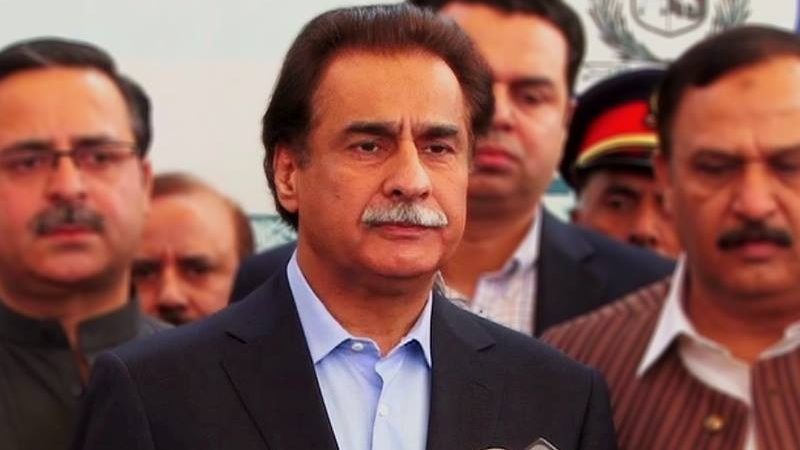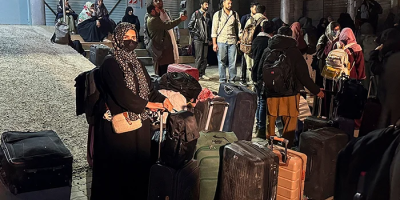NA Speaker Sardar Ayaz Sadiq, addresses at the International Women Conference

MAR 13, (DNA) -Patron of the Women’s Parliamentary Caucus and former Speaker, National Assembly of Pakistan! Mohtarma Shaista Malik! Secretary Women’s Parliamentary Caucus! Hon’ble Parliamentarians and International Delegates from 16 countries!
Distinguished legislators, Members of the Civil Society, Academia, Media, Guests, Ladies and Gentlemen!
Assalam-o-Alikum and a very warm welcome to Pakistan!
It is my pleasure to join you all at the inaugural session of the International Women Parliamentarians Conference, organized by the Women’s Parliamentary Caucus.
I am pleased to note that delegations from 16 countries of Asia, Africa, Europe and the Australian continents have gathered here in Islamabad to share views and exchange best practices in the critical realm of women’s meaningful political, economic, social and cultural empowerment.
You have travelled long distances in these testing times to reaffirm your solidarity and build new alliances.
Your respective journeys reflect your shared desire for peace with dignity and progress with partnership.
I therefore, whole-heartedly welcome you to Pakistan and hope for your purpose-filled and comfortable stay.
Parliamentarians, Delegates, Ladies and Gentlemen!
The evolution of modern state sadly underscores the bitter truth that it developed on the political isolation, and not inclusion of women.
From Plato’s “Republic” to Rousseau’s “Dream of Democracy”, political philosophy was surely not generous to accept women’s rights as human rights.
And when Olyme de Gouges (Oo-Lump-Da-Goo-JGe) challenged the French Revolution’s Declaration of the Right of Man and Citizen for excluding women, she was castigated, called hysterical and after being accused of wanting to be a statesman and forgetting the virtues of her sex, she was guillotined in 1793.
This was not the only sacrifice.
Women have surely paid a heavy price —- and they still continue to fight the same centuries old prejudices.
It, however, goes to the resilience of the towering women of human history, who have truly been the agents of change — not only for themselves but also for the entire humanity.
One hundred years ago, only two countries allowed women to vote.
Today, that right is virtually universal, and women have now been elected to lead Governments in every continent.
Women, too, hold leading positions in professions from which they were once banned.
Far more recently than a century ago, the police, courts and neighbors still saw violence in the home as a purely private matter. Today two-thirds of countries have specific laws that penalize domestic violence, and the United Nations Security Council now recognizes sexual violence as a deliberate tactic of war.
But despite this progress over the last century, the hopes of equality are a long way from being realized.
Almost two out of three illiterate adults are women.
Girls are still less likely to be in school than boys.
Every 90 seconds of every day, a woman dies in pregnancy or due to childbirth-related complications despite us having the knowledge and resources to make birth safe.
Across the world, women continue to earn less than men for the same work.
In many countries, too, they have unequal access to land and inheritance rights. And despite high-profile advances, women still make up only 23 percent of legislatures, 8 percent of peace negotiators, and only 28 women are heads of state or government.
It is not just women who pay the price for this discrimination.
We all suffer for failing to make the most of half the world’s talent and potential.
We undermine the quality of our democracy, the strength of our economies, the health of our societies and the sustainability of peace.
This is the lesson, which I have learnt in my long carrier as a businessman, social activist and later as a political worker.
My experience in the House tells me that the House remains focused, targeted towards the well-being of the communities and human-development specific if women legislators are actively involved in legislative processes.
It’s indeed because of the people-centric approach of our women parliamentarians that almost 60 % of the House Business has been generated by them, although they comprise only 20% of the total strength of the House.
The ministries headed by women parliamentarians have shown accelerated performance and women parliamentary secretaries have come to the House better prepared to answer the Questions of their fellow parliamentarians.
The development and sustained presence of across-party lines Women’s Parliamentary Caucus in our Parliament has been instrumental in this regard. It has not only enabled women parliamentarians to harness their best potential but has also ensured that women’s agenda remains on the table.
It is because of this useful platform that the Parliament recently unanimously passed the Anti Rape Bill and the Honour Killing Bill respectively. These two are in addition to the over two dozen women specific legislations, enacted during the last ten years.
Such pro-active approaches reflector women parliamentarians’ commitment and their zeal to be “twice as good”. And I have no hesitation to admit that indeed they are!
In the next two days you all will be focusing on critical areas of concern, which affect women parliamentarians’ meaningful involvement for the promotion of democracy and social justice.
No democracy can claim to be representative if it ignores the plight of the marginalized sections, which primarily includes women, children and the minorities. This is the essence of the ideal of social justice.
Perhaps no other segment has been more affected by the menace of terrorism than women. Their voices and concerns must be adhered while designing the peace and security mechanisms.
The global commitment to Sustainable Development Goals remind us that the path to Confronting ignorance for a healthy and educated citizenry originates from women-lead and women centric policy.
Pakistan’s Parliament bears the pride to be the first parliament in the world to have incorporated the international development agenda into its parliamentary strategic vision by establishing the first parliamentary secretariat on SDGs. It’s headed by a woman Member.
Confronting Biases for an Inclusive Society remains a common responsibility across institutional and gender divide. Kofi Anan said and I quote:
“The strength, industry and wisdom of women remain humanity’s greatest untapped resource. We simply cannot afford to wait another 100 years to unlock this potential.”
These themes of your Conference, therefore, are critical to generating a global debate to reach consensus solutions and future roadmap. And for doing so, I refer to this year’s International Women’s Day theme: Be Bold for Change.
While women will have to continue putting up the brave front, it is essential that they are joined by their men colleagues. Society cannot flourish with isolated islands. There must be a joint concerted approach. We must make every individual child —girl as well as boy — the importance, utility and potential of women in society.
Here, I am reminded of a noted women’s activist and prolific writer of South Asia Kamla Bhasan, who said and I quote:
“I know enough women who are totally patriarchal, who are totally anti-women; who do nasty things to other women. And I have known men who have worked for women’s rights their whole life. Feminism is not biological. Feminism is an ideology.”
Ladies and Gentlemen!
Before I conclude, I also wish to touch upon yet another important aspect of women’s comprehensive political participation.
This relates to the idea of quotas. There is no denial that for almost half century, the idea of preferential quotas has enabled women to enter the legislative and administrative chambers. This has indeed helped in making their voices to be heard. But let me dare to say, it is not a lasting solution.
On the contrary, it has now started creating glass ceilings and restricted women’s amalgamation in mainstream political processes.
We need to build upon it and move forward. We must not create comfort zones.
In this regard, the electoral reform proposals, as chalked out by all parliamentary groups in Pakistan’s parliament and which will be shortly presented to the House for its scrutiny, are of immense importance. These proposals include two key suggestions:
Reservation of a mandatory 5% quota of awarding party tickets to women from general constituencies
And 5 to 10% mandatory women voters’ turn-out for the validity of any constituency election
While in my personal capacity, I may not be satisfied by the figures of 5 and 10 percent, I still believe that this will be a starting point in institutionalizing the women’s mainstreaming process in Pakistan’s politics.
Friends, Colleagues, women parliamentarians!
Plurality and diversity are democracy’s greatest strength. These values demand from us, the parliamentarians, to constantly strive to ensure that no child, woman or man is excluded or left behind.
Let the divisions of race and religion, gender and geography must not affect the common bonds of human compassion and solidarity.
We must not remain prisoners of age-old customs and traditions.
As legislators, we must be the torch-bearers of change and harbingers of a common world with equal opportunities. I thank you all
Related News

Pakistan eliminates Mid-level TTP leaders in cross-border strikes as Operation Ghazab-lil-Haq intensifies
RAWALPINDI, MAR 5 /DNA/: Security sources on Thursday confirmed that several mid-level leaders of theRead More

Pakistanis fleeing Iran describe strikes shaking ground under their feet
ISLAMABAD, MAR 5 /DNA/: Pakistanis fleeing Iran described explosions and missile strikes across Tehran shakingRead More


Comments are Closed